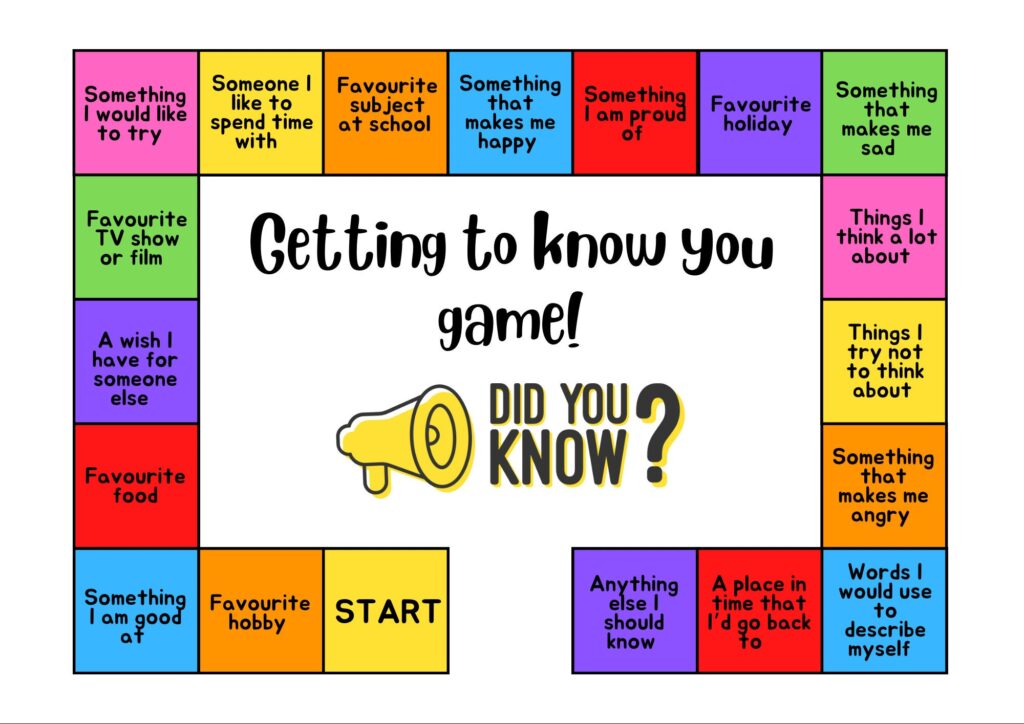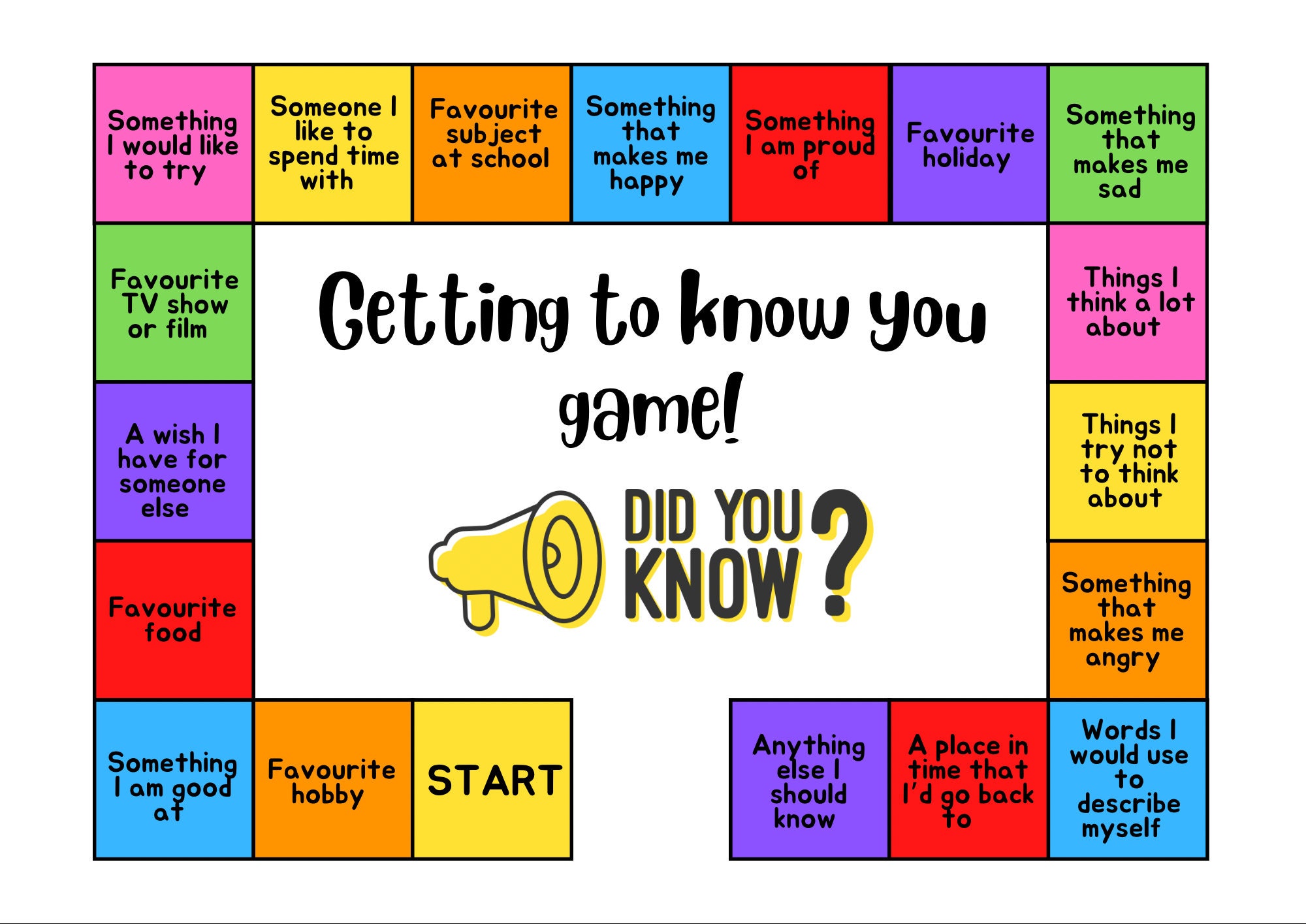
Get to Know You Questions for Teenagers: Sparking Conversations and Building Connections
Navigating the teenage years can be a complex landscape of self-discovery, social dynamics, and burgeoning identities. As teenagers explore who they are and where they fit in, fostering meaningful connections becomes paramount. One effective way to facilitate these connections is through thoughtful and engaging conversation starters. “Get to know you questions for teenagers” serve as valuable tools for breaking the ice, sparking genuine dialogue, and building rapport in various settings, from classrooms and youth groups to family gatherings and social events. This article delves into the art of crafting and utilizing these questions, providing a comprehensive guide to fostering deeper understanding and stronger relationships with and among teenagers.
The Importance of “Get to Know You Questions” for Teenagers
Teenagers often face unique challenges in expressing themselves and connecting with others. They may be self-conscious, unsure of how to initiate conversations, or simply lacking the tools to delve beyond superficial small talk. “Get to know you questions” provide a structured yet flexible framework for initiating these conversations, helping teenagers to:
- Break the ice: These questions offer a comfortable starting point, easing anxiety and encouraging participation.
- Discover common interests: By exploring shared hobbies, passions, and experiences, teenagers can find common ground and build connections based on mutual understanding.
- Develop empathy and understanding: Learning about others’ perspectives and backgrounds fosters empathy and promotes a more inclusive and accepting environment.
- Improve communication skills: Engaging in meaningful conversations helps teenagers develop their communication skills, including active listening, expressing themselves clearly, and responding thoughtfully.
- Build self-confidence: Sharing their thoughts and experiences in a supportive environment can boost teenagers’ self-confidence and sense of belonging.
Crafting Effective “Get to Know You Questions”
Not all questions are created equal. To maximize the impact of “get to know you questions,” it’s essential to craft questions that are:
- Age-appropriate: Questions should be tailored to the cognitive and emotional development of teenagers. Avoid questions that are too complex, intrusive, or embarrassing.
- Open-ended: Open-ended questions encourage detailed responses and allow teenagers to express themselves more fully. Avoid questions that can be answered with a simple “yes” or “no.”
- Engaging and thought-provoking: Questions should be interesting and stimulate critical thinking. Aim to spark curiosity and encourage teenagers to reflect on their experiences and beliefs.
- Respectful and inclusive: Questions should be sensitive to diverse backgrounds and experiences. Avoid questions that could be offensive, discriminatory, or triggering.
- Fun and lighthearted: Injecting humor and playfulness can make the conversation more enjoyable and create a more relaxed atmosphere.
“Get to Know You Questions” Categories for Teenagers
To cater to different contexts and objectives, “get to know you questions for teenagers” can be categorized into various themes:
Icebreaker Questions
These questions are designed to break the ice and create a comfortable atmosphere. They are typically lighthearted and easy to answer.
- If you could have any superpower, what would it be and why?
- What’s your favorite song right now?
- What’s the most interesting thing you’ve learned recently?
- If you could travel anywhere in the world, where would you go?
- What’s your favorite way to spend a rainy day?
Interest-Based Questions
These questions delve into teenagers’ hobbies, passions, and interests, helping them find common ground and build connections based on shared experiences.
- What are you passionate about?
- What’s your favorite book, movie, or TV show and why?
- What kind of music do you like to listen to?
- Do you play any sports or participate in any extracurricular activities?
- What are your favorite things to do in your free time?
Personality and Values Questions
These questions explore teenagers’ personality traits, values, and beliefs, fostering deeper understanding and empathy.
- What are you most proud of?
- What are your strengths and weaknesses?
- What are your goals for the future?
- What’s important to you in a friendship?
- What are some things you value in life?
Experience-Based Questions
These questions focus on teenagers’ past experiences, providing insights into their backgrounds and perspectives. When using these, be mindful of potentially sensitive topics and offer alternative questions if needed.
- What’s the most memorable trip you’ve ever taken?
- What’s the biggest challenge you’ve overcome?
- What’s the best piece of advice you’ve ever received?
- What’s something you’ve learned from your family?
- What’s a skill you’d like to learn?
Hypothetical Questions
These questions encourage creative thinking and allow teenagers to explore different scenarios and perspectives.
- If you could have dinner with any three people, living or dead, who would they be?
- If you could change one thing about the world, what would it be?
- If you could live in any time period, when would you choose?
- If you could have any job in the world, what would it be?
- If you could only eat one food for the rest of your life, what would it be?
Tips for Facilitating “Get to Know You” Activities
To ensure that “get to know you” activities are successful, consider the following tips:
- Create a safe and supportive environment: Emphasize the importance of respect, empathy, and active listening. Ensure that everyone feels comfortable sharing their thoughts and experiences.
- Set clear guidelines: Explain the purpose of the activity and provide clear instructions. Set time limits for each question and encourage everyone to participate.
- Model vulnerability: Share your own answers to the questions to demonstrate that it’s okay to be open and honest.
- Encourage follow-up questions: Encourage teenagers to ask follow-up questions to show genuine interest and deepen the conversation.
- Be mindful of individual differences: Recognize that some teenagers may be more introverted or shy than others. Provide opportunities for them to participate in ways that feel comfortable.
- Adapt to the context: Tailor the questions and activities to the specific setting and objectives.
“Get to Know You Questions” in Different Settings
“Get to know you questions for teenagers” can be effectively utilized in various settings:
Classrooms
Teachers can use these questions to build rapport with their students, foster a positive classroom environment, and promote collaboration. They can be incorporated into icebreaker activities, group discussions, or individual assignments. The use of “get to know you questions” at the start of a new school year or semester can be especially beneficial.
Youth Groups
Youth group leaders can use these questions to help teenagers connect with each other, build a sense of community, and explore their faith or values. They can be used during meetings, retreats, or service projects.
Family Gatherings
Families can use these questions to spark meaningful conversations, strengthen family bonds, and learn more about each other’s lives. They can be used during dinner, road trips, or family game nights. “Get to know you questions” can be a welcome alternative to the usual small talk.
Social Events
These questions can be used to break the ice at parties, social gatherings, or new student orientations. They can help teenagers meet new people, find common interests, and build friendships.
Examples of Specific “Get to Know You Questions” for Various Situations
Here are some examples of “get to know you questions” tailored to specific situations:
- For a new student: “What are you most excited about for this school year?”
- For a team-building activity: “What’s a skill you bring to the team?”
- For a discussion about values: “What’s a cause you care deeply about?”
- For a fun icebreaker: “If you could have any animal as a pet, what would it be?”
- To foster empathy: “What’s something you wish more people understood about you?”
The Evolution of “Get to Know You Questions” in a Digital Age
In today’s digital age, “get to know you questions” can also be adapted for online platforms and virtual interactions. Online forums, social media groups, and video conferencing platforms provide opportunities to connect with teenagers from diverse backgrounds and locations. However, it’s crucial to ensure online safety and privacy when engaging in these activities. Emphasize the importance of responsible online behavior and encourage teenagers to be mindful of the information they share.
Beyond the Questions: Building Lasting Connections
While “get to know you questions” are a valuable tool, they are just the starting point. Building lasting connections requires ongoing effort, genuine interest, and active listening. Encourage teenagers to be present in the moment, engage fully in conversations, and show empathy and understanding. By fostering a culture of open communication and mutual respect, we can empower teenagers to build strong relationships and navigate the challenges of adolescence with confidence and resilience. The real power lies not just in asking the “get to know you questions”, but in truly listening to and valuing the answers.
Ultimately, the goal of using “get to know you questions for teenagers” is to cultivate a sense of belonging, understanding, and connection. By creating opportunities for meaningful dialogue and fostering a supportive environment, we can help teenagers thrive and develop into well-rounded, empathetic individuals. [See also: Teen Social Skills Development] Remember, every question is a chance to learn something new and build a stronger, more connected community.

